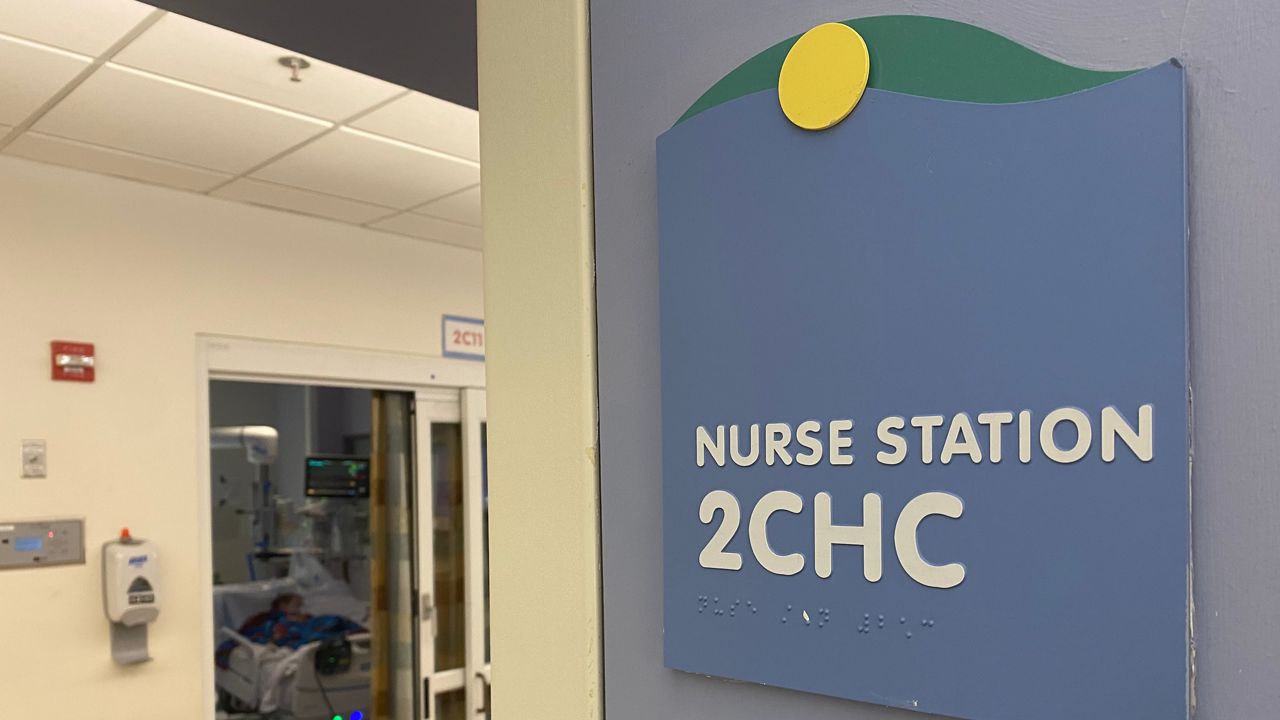CHAPEL HILL, N.C. — A pedaitric surge unit has already expanded a week after it was opened at UNC Hospitals in Chapel Hill.
What You Need To Know
- A UNC Med Center Surge Unit has already expanded
- The temporary overflow space grew from six to eight beds
- The surge unit was created to help with the overwhelming demand from high RSV and flu volumes
Last Wednesday, a team from UNC Hospitals and UNC Children’s rapidly converted six beds on the sixth floor of UNC Hospitals in Chapel Hill into a surge unit, which means extra beds were added.
A communications director for the UNC Health system said a medical team has since added two more beds. This most recent addition pushes the total number of beds in the surge unit to eight.
As case numbers of various pediatric respiratory illnesses continue to rise, so does the urgency for how to treat infected patients. Influenza caseloads are increasing statewide, while the amount of children diagnosed with Respiratory Syncytial Virus seems to be declining.
However, the doctors and nurses caring for sick kids are still treating a fair number of RSV patients.
Over the last week, the spokesman confirmed 430 flu and 185 RSV cases at UNC Hospitals in Chapel Hill. Out of that tally, 292 of those who tested positive for the flu were children. Additionally, 76 of the 185 RSV cases were children.
Emergency rooms and pediatric critical care wards are also seeing high numbers right now. The availability for treatment has been strained since October, when the UNC medical team invited Spectrum News 1 inside their PICU.
The overwhelming demand for more pediatric beds due to high RSV and flu volumes has rippled across the health system.
While plans may change based on circumstances, they expect that the Pediatric Surge Unit will be in operation for six weeks.
Dr. Benny Joyner, the Chief Medical Officer for Pediatrics at UNC Children’s, said the impact is showing up in his staff in more ways than one.
“As one can imagine, it is a challenge. We are trying to assist as many as we can as safely as possible, but this leads to potential exhaustion and burnout,” Dr. Joyner said.
Those sentiments come as many health care networks beyond the UNC system have made the tough call to reroute patients to other medical campuses when not enough room is available.
Joyner said the quality of care often depends on not only the amount of employees staffed for each shift, but how well rested those caregivers are when they walk into work.
“The need is there, and our nature is to try and help, but we don’t want to take on so much that we don’t provide excellent care to our existing patients. That choice weighs on a person very much: 'How do you care for the most vulnerable as resources (including personnel) are running low?'” Joyner asked.
There’s also the reality of pulling resources from other areas of medical necessity. The unit is triaging patients and caring for them. The spokesperson for UNC Health confirmed medical teams have dipped into resources from other areas, including emergency transport services across the system.
The chief medical officer at UNC Children’s said the backlog of patients in the emergency department creates challenges to accept other patients.
“A surge in pediatric patients is not all together different from the COVID surge in adults insofar as the services required to manage it required the same level of coordination and communication-which is constant and fatigue-inducing,” Joyner said.





